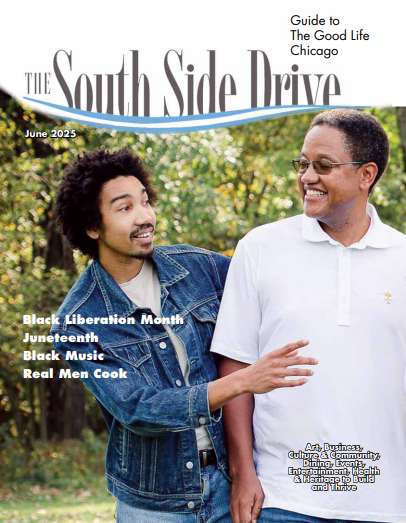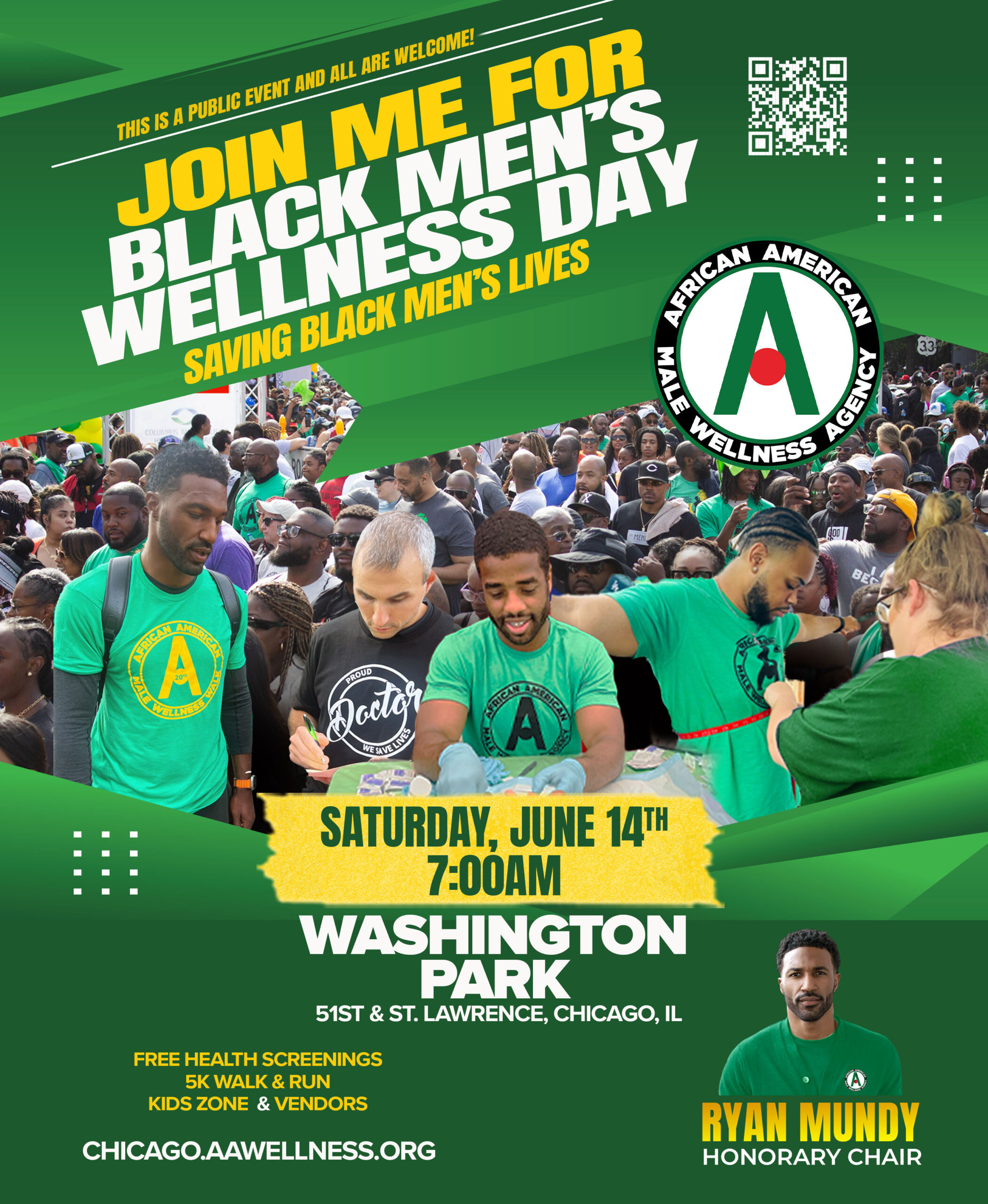This wasn’t just another Webinar. It wasn’t just some people talking the usual talk about health. This webinar, presented by the Blue Door Neighborhood and narrated by Dr. Obari Cartman, brought real answers to real questions about the health of our Black communities, our Black families, and especially our Black children.
What stands out is that the presenters are people who don’t just talk the talk; they have actually walked the walk. They learned, either from childhood experiences or occurrences later in life that woke them to the reality that there is actually a crucial connection between nutrition and physical, mental, and emotional health.
Sadeek Colquitt, Founder, and CEO of Plant-Based Afrikan confessed that he weighed 284 pounds at the age of 29 and was barely able to walk up a flight of stairs. His “aha” moment came when a doctor recommended medication for his high blood pressure, and told him he would have to take those pills for the rest of his life.
At 29 years old, the rest of your life could be a long time. It was at that time that he decided that taking a blood pressure pill every day would not be his new normal. It was that realization that led him down the path of understanding. That understanding and the brothers he encountered led him to Soul Vegetarian Restaurant. Fast forward, Sadeek says he is healthier at the age of 50 than he was at 29.
Dr. Tameye Matthews had a similar but different story. She said at the age of 30, going through a divorce, gaining weight, having fibroids, pain, and hypertension, and had a doctor prescribe a cholesterol-lowering medication. At that time, she knew nothing about the naturopathic world until she met a sister who had Lupus, who helped her condition by eating a nutritious diet of fruits and vegetables.
At the age of 39, having lost feeling in her left arm, she made a decision that what she was doing was not working – she was involved in her church, a trainer on her job, she appeared to be successful, but she realized she needed help. She went on a holistic detox – no television, no radio.
She bought books, listened to tapes, had a vegan coach, went through a 25-day detox, and began to relearn how to eat for her particular body. She didn’t selfishly keep the knowledge she acquired during that period to herself. She started her business, teaching the community how to detox. Help-ing people understand the mind-body-spirit connection. So far she has helped 500 people who were experiencing spiritual depression.
She began her journey at the age of 39, and now at 51 she is a living example of the truth. She is teaching the community that we can heal ourselves and not have to wait on someone on the outside to restore us.
The similarities in Sadeek Colquitt and Dr. Tameye Matthews’ stories are, as Dr. Cartman pointed out – They both came to a breaking point, a point where a doctor says this is it or else. For Sadeek Colquitt it was the prospect of taking a blood pressure pill every day for the rest of his life. For Dr. Matthews, it was the idea of taking a statin drug for high cholesterol, which is known to do more harm than good.
Unlike either Dr. Matthews or Sadeek Colquitt, diet had always been a part of the Cultural Revolution of Zarakyah Ahmadiel, Director of The Peace Diet Program. He stopped eating pork as a senior at Morgan Park High School when he aspired to become a member of the Nation of Islam. He was introduced to Soul Vegetarian Restaurant by a Seventh Day Adventist high school classmate, beginning his 24 years and counting lifestyle as a vegan. He began working with disaffected youth, using nutrition to help those parts of their minds that had been affected by trauma. Instilling in them and the community as a whole, how diet is an intricate part of our lives and gives an opportunity for collective change and social re-engineering.
Prior to the COVID pandemic, he was on track to developing a supplement that supports those parts of the brain that deal with trauma, that at certain levels can lead to suicide. COVID meant children couldn’t be in school. So he had to rethink how to deliver it. He developed a beverage using the same ingredients as the supplement, enhanced with Elderberry, Vitamin C, Vitamin D, and called it MOJO Juice. He is now in negotiations with UIC (University of Illinois Chicago) to conduct a study to see how impactful diet can be on the brain.
What led him to see how a healthy diet plus supplementation is crucial for mental brain health and physical brain health, is when his then 7-year-old son slipped and banged his head on the side of a pool and began having a seizure. By the time he got to the hospital, he saw doctors surrounding his son, who was in an induced coma, discussing how bad the brain bleed would be.
His son, who had been on a healthy diet, receiving supplements all of his life, woke up with no trauma and no brain bleed. The doctors were baffled by his recovery. Zarakyah learned that the exact supplementation he had been using, was that used by the Department of Defense and the United States Army. That supplementation saved his son’s life.
Dr. Audrey Tanksley is a Regional Medical Director at Ac-cess Community Health Network and a Clinical Instructor at UChicago Medicine. Although she went to medical school and became an internal medicine physician, she is also an integrative medicine physician, having returned to school for additional training.
She loved fresh vegetables and fruit from early childhood, having grown up with her grandparents. Her grandfather, a Tennessee farmer, always had a garden. In Chicago, he de-voted a quarter of his backyard to a garden, where he grew fresh vegetables. Her grandmother went to doctors, thanked them for their advice, then came home to use the remedies she had learned from her grandparents, or from the “mil-lions of books” she had on natural health.
When she began to practice as an MD, she found that many of the disparities and poor outcomes experienced by her patients didn’t happen because they didn’t take the pharmaceutical medication she prescribed. They occurred because of their diets and lack of exercise. Dr. Tanksley later began work at the University of Chicago, which had a very good nutritional program. She met a doctor whose practice was to administer palliative care to children and infants. She witnessed this doctor helping little kids suffering from a lot of pain. He used diet and non-traditional methods such as acupuncture and massage. Wanting to get deeper into that kind of practice, she enrolled in the University of Arizona to study integrative medicine, a blend of the best of western medicine and the best of non-western medicine.
Dr. Tanksley is opening a community wellness center in Chicago’s Woodlawn community. She pointed out that if you walk down the street on the north side, you will see acupunc-ture clinics, massage parlors, everything needed to promote wellness. On the west side there is a center dedicated to ho-listic health. But, there is nothing like that on the south side.
Having become acquainted with the presenters and their stories, Dr. Cartman then asked four questions:
1. How do you suggest those who want to eat a healthy diet do it within a limited budget?
2. What are specific mental health strategies?
3. How do we get our children to do it?
4. How do you practice healthy eating within the cultural traditions of Black life?
Sadeek Colquitt’s answers:
How do you suggest those who want to eat a healthy diet do it within a limited budget?
He literally helps people by walking through the grocery store with them, whether it’s Jewel or Wal-Mart, or Maria-no’s. It doesn’t have to be Whole Foods. He teaches them to upgrade the types of food they are buying, no matter where they shop. He emphasizes that you don’t have to pay more to be healthy. For instance bananas cost less than steak. Apples are cheaper than shrimp.
Specific mental health strategies
To change your mind about food, change your circle. Start dating someone who is plant-based. Tap into a plant-based group on Facebook. Join a plant-based organization. When you go to gatherings, make your own food and take it with you. You don’t have to tell people it’s vegan. For example, Mental Strategies…
(Continued)
Whole Foods used to put their Vegan Chocolate Chip Cook-ies in the front of the store. And the cookies remained there. No one touched them. They removed the word “Vegan” from the label, and now they can’t keep them in the store.
Dr. Matthews’ Answers
How do we get our children to do it?
It’s important for people to understand our history. For in-stance, there is no junk food in Ghana, and fifty years ago our grandparents weren’t eating processed food.
You have to go vegan if you want to heal. You can’t make the right diet a fad or trend. If you’re doing something to fit in a dress, you won’t sustain that behavior. Also have posi-tive things in your environment. Learn how to manage emo-tions and stress. The Universe is bringing what you need if you desire to be well. When you put nutritionally dense food into your body, you won’t have cravings. Hunger and star-vation are not the same. Our bodies have to go into ketosis every once in awhile.
Zarakyah’s Answers:
Specific Mental Strategies
We have to understand how trauma affects our behavior, and how food can be addictive. Our brain doesn’t know the difference between chocolate and cocaine. There is plenty of information about how we can eat right. But if you don’t feel good about yourself you will self-sabotage by eating the wrong foods.
How do we get our children to do it?
Don’t tell them to eat it because I say so, but because it’s what we do.
Dr. Tanksley’s Answers
Specific Mental Strategies
Self-esteem means how you value yourself. If you value yourself, you’re going to make the right choices.
Feeling that the other presenters had adequately answered all of the questions, she decided to close by talking specifi-cally about COVID and what we can do to prevent it.
First get enough sleep. If you’re sleep-deprived you have an increased risk. Restorative sleep is the best thing you can do for your body. Melatonin is a natural supplement that helps you to sleep. Deep breathing is also very important in increasing your lung capacity. Chi Gong is a meditation movement that helps with deep breathing. There is a Chi Gong exercise on You Tube.
A healthy, colorful diet is better than any supplement you can take.
Individuals with severe respiratory infections had in-sufficient amounts of Vitamin D in their system. People should take a Vitamin D3 supplement of 5,000 i.u. daily. But if you’re deficient, you should start out with 50,000 iu ???per week.
Should take 1,000 mg. of Vitamin C daily.
Zinc is good for immunity overall.
Magnesium at least every other day.
Elderberry is really good for boosting your immune sys-tem. However, if you have an infection you should stop taking Elderberry, because studies have shown it worsens the infection.
Green Tea is an amazing anti-oxidant.
Speaking of amazing, it was an amazing webinar – and Part 2 is coming soon! On Thursday, April 29, at 6pm the entire will be back for a virtual encore!
Register free at: https://tinyurl.com/nutritionencore






